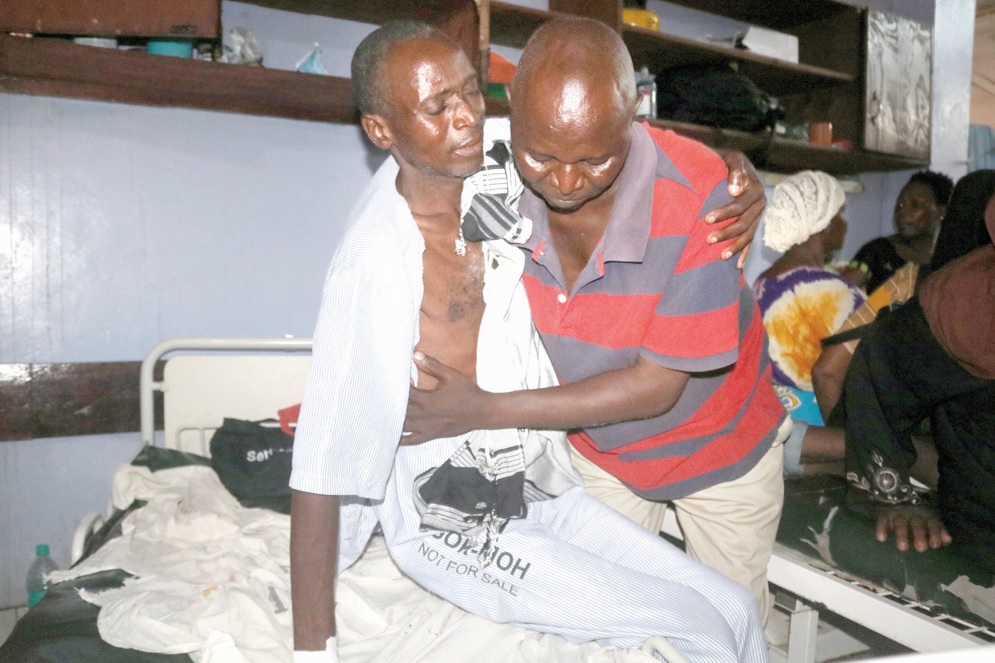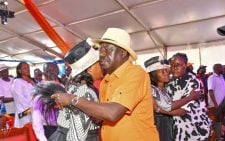Rescued church faithful exhibit signs of deep indoctrination

The government yesterday declared Shakahola village within Chakama Ranch a crime scene and imposed curfew orders between 6pm and 6am for a period of 30 days.
Interior Cabinet Secretary Kithure Kindiki also declared the entire Chakama Ranch, in Lango Baya division, Malindi Sub-County, as a disturbed area.
“The area is an active security operation zone and no access to it by the public shall be permitted effective April 26, except as may be permitted by the operation commander and/or until these orders are vacated,” the CS said.
The declaration is contained in the Kenya Gazette Legal Notices No.52 and 53 of 2023 published on Tuesday, April 25.
No public gatherings
As a result of the orders, there shall be no public gatherings, processions or movement either alone or as a group during the period of curfew into and out of Chakama Ranch, measuring 20,418 hectares.
However, any movement or gathering will only be permitted, in writing, by the Kilifi County Police Commander in consultation with the Operation Commander.
The CS also said that the government had set up a Public Information, Tracing and Support Centre at the entrance to Chakama Ranch at Shakahola village, at the turnoff from the Malindi-Sala Gate highway approximately 70km from Malindi town.
Members of the public have been advised to file any enquiries, information or missing persons reports at the centre or call the Centre helpline 0112 966 857.
Yesterday, the Malindi Chief Magistrate granted the investigating officers orders to search and seize all property belonging to Pastor Mackenzie and eight other suspects.
This followed the directions of the Director of Public Prosecutions (DPP) that the investigation officers identify the assets of the suspects for the purposes of preservation, confiscation and forfeiture, and upon application before court by a team of Prosecutors appointed by Noordin Haji to handle the Shakahola massacre.
Orders to search
Sergeant Joseph Yator of the Malindi Directorate of Criminal Investigations (DCI) and any other officers working with him in the investigation were granted orders to search Mackenzie’s premises where he lives and or carries on his calling or business in Furunzi and Shakahola.
The officers were also granted orders to search the premises and residences of Robert Kahindi Katana, Sanga Stephen Muye, Gedion Mbithi Kioko, Joseph Kenga Mbogoli, Stephen Ominde Lwangu, Smart Mwakalama and Alfred Asena.
To search is for the purposes of retrieving bank details or documents, title documents, sale agreement, motor vehicle details and any other document and item linked to the offences of terrorism, radicalization, murder and any other charges that will be preferred against them
The detectives were also authorized to seize any such property as stipulated in the execution of the warrants and bring them to court for appropriate orders
Malindi Law Courts Magistrate also ordered that the search be conducted in the presence of the counsel for the respondents who will also make an inventory of the items or goods that will be seized during the search.
The search warrants are valid for a period of ten days and the search of the premises will be conducted during day time.
On Tuesday, Haji said the controversial pastor MacKenzie may face terror charges and directed that all his assets be identified and confiscated.
According to the DPP, preliminary investigations indicate that the suspects may have committed serious crimes including but not limited murder; procuring, counseling and aiding persons to kill themselves; terrorist acts by threatening national security and public safety and radicalization.
“This is in violation of various statutes such as the Penal Code, the Prevention of Terrorism Act, the International Crimes Act, the Proceeds of Crime and Anti-Money Laundering Act,” Haji said.
The DPP added they had obtained further orders for the exhumation of unknown number of bodies from the 800-acre land.
The DPP also said the suspects may have been promoting radical belief systems for the purpose of facilitating ideologically based violence to advance political, religious or social change.
This, according to the DPP, is contrary to Section 12D of the Prevention of Terrorism Act 2012. Upon conviction a person is liable to imprisonment for a term not exceeding 30 years.












